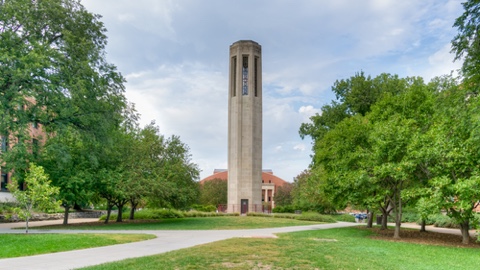
Brittany Duncan, Assistant Professor of Computer Science and Engineering at The University of Nebraska, has earned a nearly $550,000 Faculty Early Career Development Program award from the National Science Foundation to develop software that allows drones to communicate through movement, such as bobbing up and down, and to maintain comfortable distances from people. Duncan aims to ease people’s discomfort by enabling drones to communicate with the humans around them and to make drones valuable coworkers in numerous settings, such as warehouses, agricultural fields, or even nursing homes.
“As we look toward the future and new uses for drones, they’re going to need to be able to intelligently interact with people who aren’t controlling them,” Duncan said.
The research project will take place in two steps: firstly, surveying people to discover what they want drones to communicate – such as, when the drone is in photo-taking mode or simply “aware” of one’s presence; and, then, identifying drone movements that people intuitively understand. As an example, previous work showed that most people understand that a drone circling in a tightening downward spiral indicates that it’s landing.
Researchers will also poll people who are unfamiliar with drones to identify or create movements they believe communicate tasks. The team will search for commonalities, and then develop software that allows drones to make those movements. They’ll use videos posted online to test people’s ability to understand what the movements communicate.
Duncan is concentrating on movement as opposed to speech capabilities as movement doesn’t require additional hardware, thereby limiting weight and extending battery life. This will also overcome language barriers as the movements used will be as universally understood as possible.
Duncan’s team will also identify people’s comfort levels under different conditions, such as enclosed or open spaces and with varying drone sizes. With those parameters defined, she’ll create software that prevents drones from flying too close to people.
